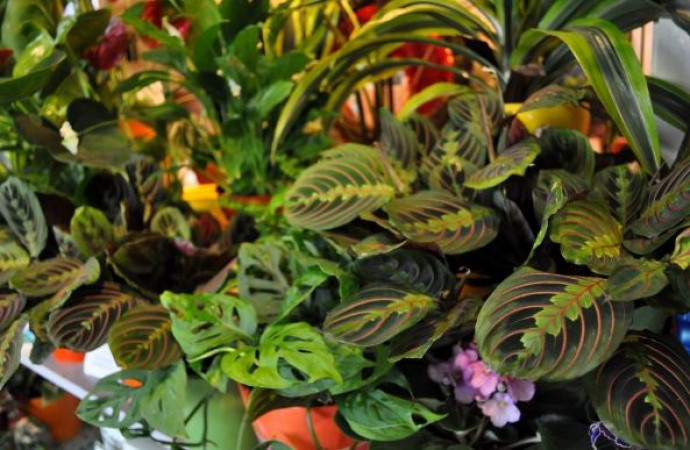
Houseplants have gained immense popularity not only for their aesthetic appeal but also for their potential environmental benefits. Many enthusiasts claim that houseplants can contribute to a healthier environment. Let's dig into this 'green' phenomenon and explore if houseplants truly live up to their environmental reputation.
Houseplants undergo photosynthesis, a process where they absorb carbon dioxide and release oxygen. This oxygen production can be beneficial for the indoor environment, improving air quality and making it feel fresher.
Certain houseplants have the ability to absorb harmful pollutants from the air, such as formaldehyde, benzene, and ammonia. They act as natural air filters, purifying the air we breathe and creating a healthier indoor atmosphere.
Houseplants release moisture through a process called transpiration. This helps in regulating indoor humidity levels, preventing dryness and making the air more comfortable for us to breathe.
Plants absorb carbon dioxide during photosynthesis, making them a natural ally in combating excess carbon dioxide in our living spaces. While one houseplant may not make a massive difference, a collective effort can contribute positively.
Strategically placed houseplants can provide shade and act as natural insulators, reducing the need for excessive air conditioning. This can lead to lower energy consumption and a decreased carbon footprint.
Houseplants can create a mini-ecosystem within your home. Some plants attract beneficial insects, fostering biodiversity even in limited spaces.
Houseplants recycle the indoor air, taking in pollutants and releasing fresh oxygen. This sustainable loop contributes to a cleaner and healthier environment.
Caring for plants can have a calming effect, reducing stress levels and promoting overall well-being. A relaxed mind is more likely to contribute positively to the environment.
Growing your own herbs and vegetables at home can reduce the need for store-bought produce and its associated packaging, contributing to a reduction in waste.
Houseplants can serve as educational tools, teaching individuals, especially children, about nature, ecosystems, and the importance of a green environment.
Embracing houseplants is part of a broader shift towards a more sustainable lifestyle. It encourages mindful living and a deeper connection with the natural world.
Taking care of houseplants instills a sense of responsibility and care for the environment, encouraging individuals to extend these values beyond their homes.
Purchasing houseplants from local nurseries supports the local economy and encourages sustainable practices within the community.
Houseplants enrich the soil with natural nutrients as their leaves and organic matter decompose, promoting healthier soil for gardening.
Houseplants encourage water conservation through mindful watering practices, fostering a culture of responsible water usage.
Engaging in gardening activities with houseplants can offer therapeutic benefits, promoting mental and emotional healing.
Houseplants can act as natural sound absorbers, reducing ambient noise and creating a more peaceful indoor environment.
Houseplants can be conversation starters, leading to discussions about environmental issues and promoting advocacy for sustainable living.
In urban settings, houseplants can contribute to creating green spaces, even in the smallest apartments, fostering a sense of nature amidst the concrete jungle.
Houseplants play a role in the delicate balance of ecosystems, even within the confines of our homes. They are an integral part of the larger environmental puzzle.
In conclusion, while houseplants may not single-handedly revolutionize the environment, their collective impact and the shift in mindset they inspire contribute to a more sustainable and eco-conscious lifestyle.
How Rekha's Pigtails Transformed Bollywood Fashion
A Man's Unique Journey: Marrying Seven Brides in One Grand Day
How to Share Internet Data with Another Mobile: A Comprehensive Guide